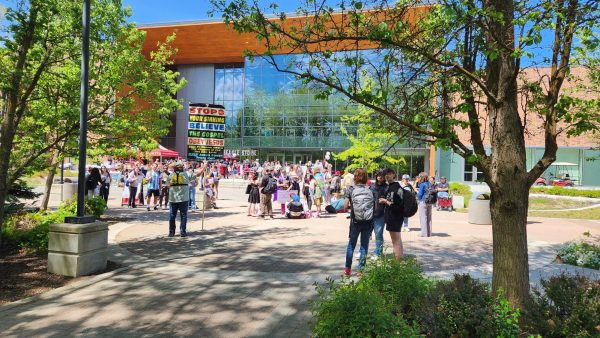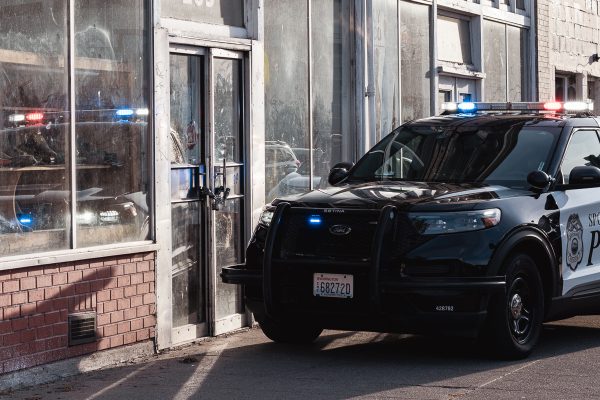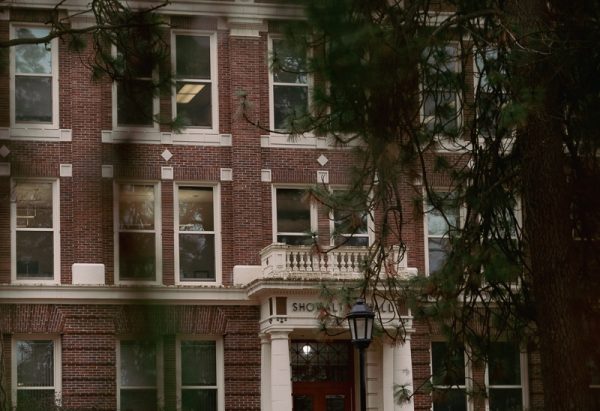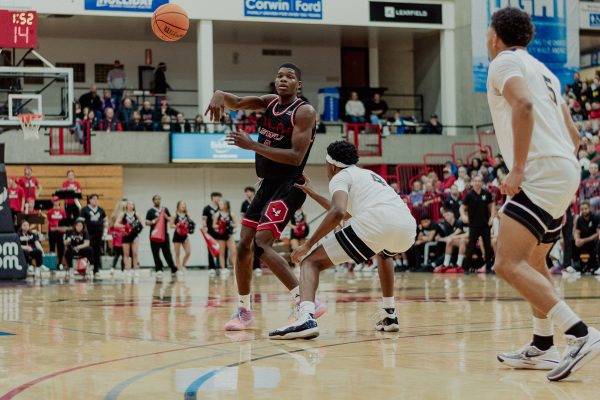Preventing sexual assaults is on us
US administration challenges college communities to confront morals on campus
Sexual assault is a national issue, the Washington Post reported.
The Eastern Washington University police Clery Act shows that in 2013 there was one report of forced sexual offence on campus. That is a decrease from 2012, which had three reported cases, and 2011, which had 11. A decrease in reported cases does not mean a decrease in the number of unreported assaults.
On Sept. 19, President Barack Obama and Vice President Joe Biden announced their public awareness campaign “It’s On Us.” This campaign aims to prevent sexual assault on university campuses by increasing bystander intervention.
According to the White House’s official list, a total of 10 community colleges and universities from Washington state have committed to the program.
However, Eastern Washington University is not on the list.
“I think it’s something we’ll absolutely work on doing,” said Tricia Hughes, director for Health, Wellness and Prevent Services.
According to Hughes, Eastern was having staff training when the campaign was launched so they have not had time to look into it.
The White House reported that “It’s On Us” supports the idea that everyone has a role in preventing sexual assault by means of creating a safe environment, no matter the location. The goal is educating and training the public to establish new social norms, to decrease misconceptions about sexual assault and to provide skills that promote confidence to intervene.
The United States Department of Justice defines sexual assault as “any type of sexual contact or behavior that occurs without consent of the recipient.”
The Washington state criminal code, under section 9A definitions, asserts that consent cannot be given if a person is mentally incapacitated. This can be a result of illness, defect, drugs or alcohol.
“An estimated one in five women has been sexually assaulted during her college years. One in five,” said Obama. “Of those assaults, only 12 percent are reported, and of those reported assaults, only a fraction of the offenders are punished. And while these assaults overwhelmingly happen to women, we know that men are assaulted too.”
According to the “It’s On Us” website, the program directors are collaborating with the Center for American Progress’ Generation Progress Internship, the American Association of University Women, organizations like the National Collegiate Athletic Association and private companies like iHeartRadio and Tumblr.
Obama and Biden said they want the campaign to strive for bystander involvement, especially from men, because men influence how women are treated by other men.
According to Hughes, Eastern is already advocating the “It’s On Us” message through other programs like “Think About It” and “Start by Believing.”
Hughes said Eastern now requires all new students to participate in “Think About It,” an online education program offered through the website Campus Clarity. This program covers bystander intervention, sexual assault, stalking, domestic violence, high risk drinking, healthy relationships and resources for receiving help at Eastern.
Hughes reported that the two hour class should open the week of Oct. 13.
“The reason we have them take it so early in their time here at Eastern is that we are trying to share our norms as an Eastern community and our expectations for students around this issue,” said Hughes. “We want them to understand that we take it very seriously but that we also would like them, if something like this were to happen to them, to report it and know that we have resources available to help in those situations.”
According to Hughes, she and the Student Support and Advocacy manager Michelle Helmerick were awarded the Board of Trustees Diversity Grant, allowing them to implement the “Start by Believing” campaign later this fall.
She said the goal for this campaign is to stop victim blaming by speaking up and believing someone when they say they were assaulted.
Hughes also reports that the program will focus on new student athletes, but the classes will also be open to sorority and fraternity members. The program’s leaders plan to work with staff members and students who live in the residence halls and have open education opportunities for students who are interested.
“Our message is that the best outcome that’s going to happen for these students is if the first person they confide in believes them,” said Hughes. “If they are believed when they first tell their story, then they are more likely to report and get the help they need.”



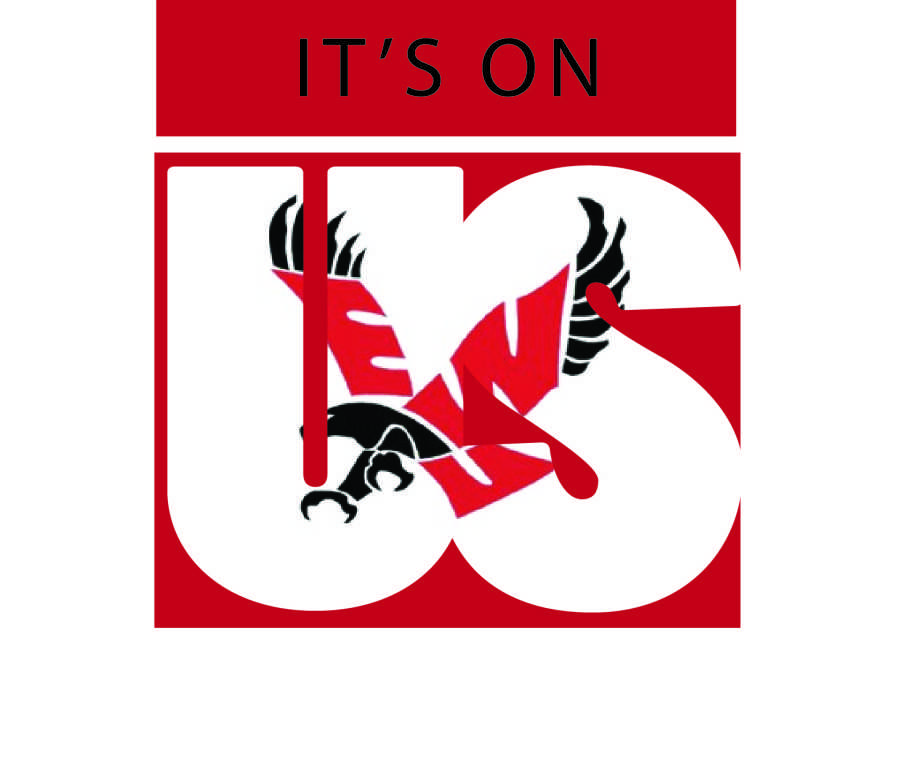
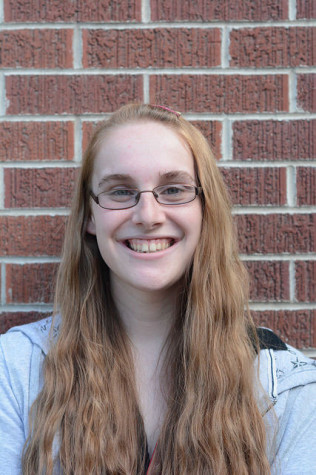
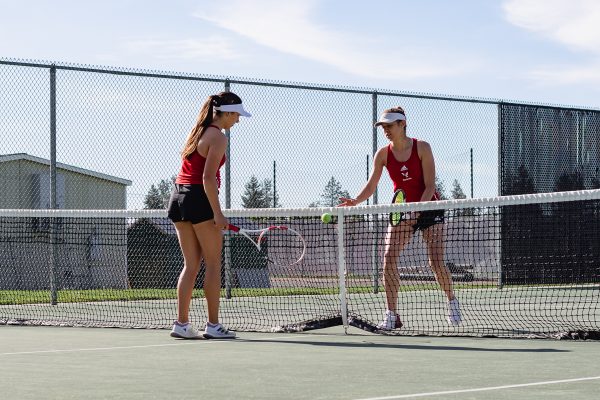
![Simmons said the biggest reasons for her success this year were “God, hard work, and trusting [her] coach and what she has planned.”](https://theeasterner.org/wp-content/uploads/2024/05/image1-1-600x400.jpg)



